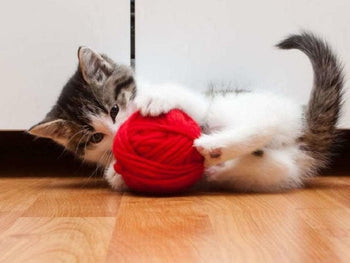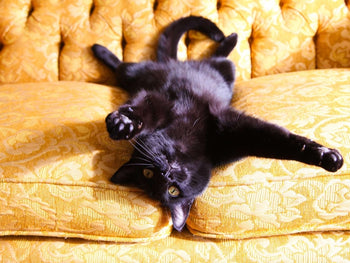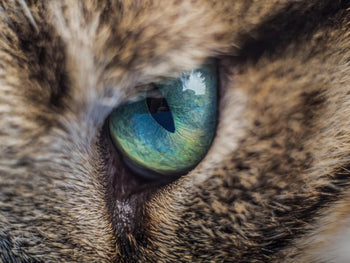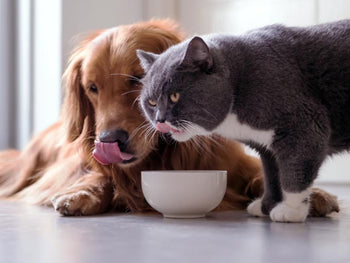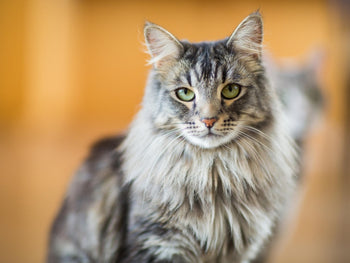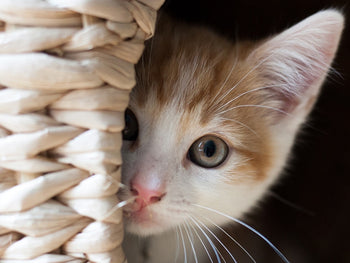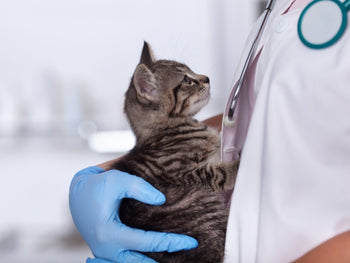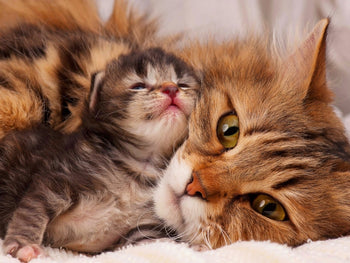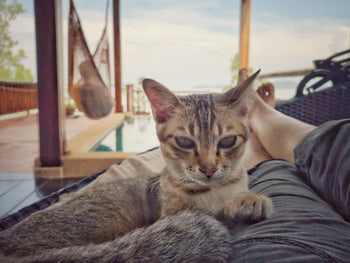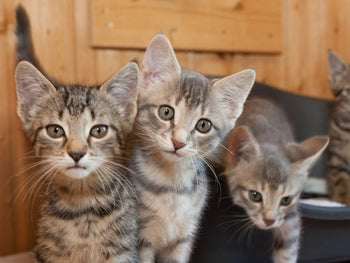
Generally speaking, the appetite of cats tends to be influenced by various factors: age, breed, activity level and so on. Nonetheless, if it seems that your furball eats all the time but keep getting skinny, it could be in trouble. Virtually every feline expert agrees that the combination of excessive hunger and weight loss in cats often indicate underlying diseases. Because of that, if you think "my cat is losing weight but eats constantly", it's strongly recommended that you take a moment to assess the situation instead of just giving your kitty more food.
Worried but don't know what needs to be done? If that happens to be the case then you have come to the right place. This article would provide you with practically everything that you must keep in mind regarding increased appetite as well as loss of weight in cats.
A Couple Of Likely Causes

Different cats obviously have different constitutions but regarding the issue of "my cat is losing weight but eats constantly", it's widely advised that pet owners consider the following possibilities.
-
Less Than Ideal Daily Meals
It's fairly common for people to get hungry shortly after eating fast food regardless of how much they eat. Well, the same thing applies to cats: if you feed your kitty food that contains lackluster nutritional values, it's going to ask for more. In addition to that, the size of the portion is also essential because as the felines bigger, they need to eat more to sustain themselves. As a result, if your fluffy friend happens to be an adult cat, don't feed it kitten-sized meals. Take the characteristics of your cat into account to give it a well-balanced diet.
-
Hyperthyroidism
To put it plainly, cats with hyperthyroidism have elevated metabolic rates which means they burn a lot more calories every day compared to normal cats. Because of that, most affected felines experience considerable increases in appetite, weight loss, muscle wasting,... Hyperthyroidism tends to show up in senior cats but kittens could have it as well. Overall, kittens that have hyperthyroidism could eat up to twice the amount of food they normally eat and still ask, beg and hunt for more.
-
Intestinal Parasites (Tapeworms, Hookworms, Roundworms,...)
As cat parents nowadays usually raise cats indoors, they don't consider worms to be significant threats to the pets. That being said, it's worth noting that worms could still reach your fluffy friends through a few intermediate hosts. Once they settle in the intestines of the felines, worms take most of the nutrition from the food that cats eat to grow and reproduce. Hence, cats that have worms feel hungry all the time because the intestinal parasites prevent them to absorb the nutrients.
-
Diabetes
Cats that receive an exclusive dry food diet day after day have high chances of developing diabetes as they age. In healthy cats, the pancreas produces insulin that let the glucose (sugar) enter the cells. Things prove quite difficult for diabetic cats as the pancreas fails to release sufficient insulin to match the current demand. Without insulin, the glucose is unable to reach the cells so it's tough for cats with diabetes to secure enough energy which increases hunger. Moreover, as the body of diabetic cats compensates by breaking down stores of protein/fat for energy, they lose weight.
-
Inflammatory Bowel Disease
All in all, inflammatory bowel disease gives the felines lots of troubles and inflamed muscle lining is one of them. Since the inflammation changes the structure of the lining, it tends to affect the cat's ability to break down and absorb nutrients from food. Obviously, if it's starved of nutrients, your cat is going to be constantly hungry regardless of how much food it takes in at mealtimes. Common symptoms of inflammatory bowel disease in cats include increased appetite, weight loss, vomiting, diarrhea...
Check us out for various astonishing cat tips & facts!
What Pet Owners Should Do

The felines excel at hiding signs of illness so it's up to cat parents to keep watch over them. That means if you see something odd in your furball then it's a good idea to make an appointment at the local veterinary clinic.
Usually, veterinarians would need you to tell them everything you know about your kitty from medical records to daily behaviors. Overall, once the vets hear something along the line of "my cat is losing weight but eats constantly" from cat parents, they would perform a series of tests to find signs of possible underlying illness. In the case your kitty receives a clean bill of health then the daily diet is likely at fault here. At all times, follow the instructions of veterinarians if you want to help your cat.
Keeping Cats In Top Shape: Tips And Tricks For Novices

Knowing how to face the issue of "my cat is losing weight but eats constantly" is nice but you must remember that by all accounts, prevention is better than cure. Implement the following precautions if you want your fluffy friend to live a healthy life.
- Use High-Quality Wet Food: Compare to dry food, wet food tends to last shorter out in the open and feature high chances of mess. On the other hand, wet food gives the felines the much-needed moisture which prevents various diseases as they grow. Just in case, pet owners should go after reputable brands of cat food if possible.
- Maintain A Periodic Deworming Schedule: It could take quite a bit of time for signs of worm infestations in cats to show up so periodic deworming is the best defense. Every now and then, have your cat dewormed so every intestinal parasite that manages to get to it would be eliminated before they cause troubles.
- Think About Annual Vet Examination: Many health issues only show clear symptoms during advanced stages so even if the pets look healthy, it's wise to take them to the vets for some examination annually. You could also use that opportunity to ask the veterinarians about how to best look after your furball at home.
Read more Cat's Health Guides and find fun stuffs on Cattybox!
